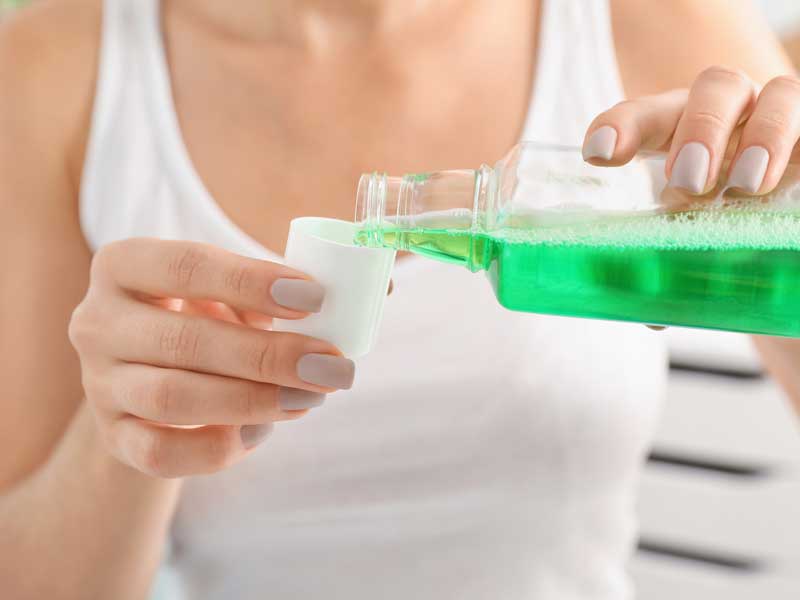
28
Dec
Benefits of Mouthwash | Dentist Riverside CA

Two of the most common dental problems for patients is tooth decay (cavities) and periodontal disease (gum disease). While they sound very different, they both have a common cause: bacteria within the mouth. While many people realize that mouthwash is effective as a breath-freshener, it’s also very important in combating oral bacteria – not only does it make your breath smell nice, it can save your teeth and gums.
Tooth decay is typically caused by acid produced when bacteria consumes food particles and sugars within the mouth. Similarly, periodontal disease occurs when bacterial colonies make their way beneath the gum line, causing damage to tooth roots and gum tissue, and eventual bone loss and tooth loss. In both cases, regular brushing and flossing can help remove plaque (bacteria-rich film on the surface of teeth) before it hardens into tartar (mineralized plaque, which continues to damage teeth and tissue, but is much harder to remove). Mouthwash helps maintain oral health by assisting in the process of killing bacteria that isn’t physically removed by the toothbrush or floss.
While brushing and flossing often cleans teeth and gums, there are a number of different surfaces within your mouth – all of which can (and will) allow bacteria to live within your mouth. Many dentists recommend that in addition to brushing your teeth, you also use your toothbrush to clean bacteria from your tongue. Similarly, using mouthwash will help minimize bacteria on the insides of your cheek, and on the gum tissue near your teeth.
Mouthwash has other benefits as well. Physically swishing mouthwash within your mouth can wash leftover food particles from your mouth. While brushing and flossing will help remove food stuck on the surfaces of the teeth, mouthwash may dislodge food particles throughout the mouth, which reduces the available food for bacteria that eventually cause tooth decay. For this reason, it’s often advisable to use mouthwash prior to brushing – mouthwash may help loosen food particles that can be fully removed with the toothbrush. Finally, some mouthwash contains fluoride – fluoride can help strengthen tooth enamel, which will help resist cavities and minimize the chances of cracked or broken teeth.
Brushing, flossing, and regular professional cleaning are the best ways to maintain a healthy mouth, but regularly using mouthwash when you brush your teeth can help minimize bacteria, remove food particles, and strengthen your tooth enamel. If you have questions about the right brand of mouthwash to consider, or about bacteria within your mouth, talk to your dentist on your next routine checkup – they’ll be happy to share their recommendation with you.
Join Our 5 Star Community!



